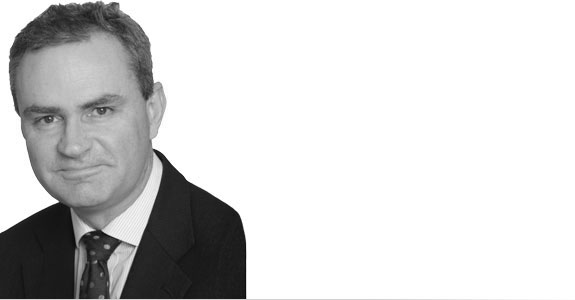Briefings
KSA: Mandates Inherent Defects Insurance Policy For Projects
We previously reported that in 2018 the KSA Ministry of Municipality and Rural Affairs Resolution introduced a plan for a new law that would require certain construction projects within the private sector to procure inherent defects insurance.1
Following the Cabinet Resolution No. 509 issued on 21/09/1439AH, the Saudi Arabia Monetary Authority (“SAMA”) has now introduced the standard form inherent defects insurance (“IDI”) policy. This law requires all contractors to obtain IDI against inherent defects for qualifying projects. Stakeholders should take note that the wording cannot be amended without prior written approval from SAMA.
Scope of Application
The IDI policy requires all contractors to obtain IDI for “qualifying projects” from 2 May 2020 onwards. SAMA’s guidance confirms non-governmental, residential and non-residential projects fall within the realm of qualifying projects. This includes high rise buildings (towers), warehouses, hospitals, hotels, buildings for gatherings (mosques, restaurants, sports facilities), education buildings, malls, telecommunication towers, industrial buildings and installations, buildings below 23 meters, and high risk buildings as per the decision of the KSA Ministry of Municipal and Rural Affairs.
A “contractor” is defined in the IDI policy as a “natural or juristic person licensed to undertake construction works, engaged pursuant to Building Contract and mandated by the concerned authority to obtain Inherent Defect Insurance”. The relevant Building Contracts are defined as contract(s) for “the design and construction of the premises”.
Cover
The IDI policy primarily provides cover for the cost of demolishing, repairing, replacing and/or strengthening the “Premises” (being the insured property) “following and consequent upon” an inherent defect that is discovered and notified within the period of cover and is not excluded. The inherent defect must have caused either (i) physical damage to the insured premises; or (ii) the threat of imminent collapse to the premises, requiring immediate remedial measures to prevent collapse.
Inherent Defects
The “Premises” contemplated by the IDI policy is notionally divided into various categories, being “Structural Works”, “Envelope”, “Non Structural Works”, “Equipment, Fixtures and Fittings” and “External Works”.
An inherent defect is defined as “any defect in the Structural Works or the Envelope weakening the strength and steadiness or stability of the Premises and attributable to a fault, error or omission in design, materials, geological investigation or construction which was undiscovered at the date of issue of the Occupancy Certificate.”
Structural Works within the scope of the policy include all internal and external loadbearing structures essential to the strength and stability of the Premises, including but not limited to foundations, columns, walls, floors and beams. The Envelope comprises all works that form part of the external walls and roofing but excludes (i) “moveable elements” of windows, doors, and skylights; (ii) external cladding that is not essential to the stability of the building; and (iii) equipment, fixtures and fittings.
Exclusions
Cover is subject to a number of specified exclusions, including for loss arising out of alterations of geological conditions, failure by the contractor to remedy issues that have become known prior to inception of the policy, pure direct/indirect economic losses and structural changes that have taken place during the period of insurance (unless these have been notified to insurers and an endorsement issued for additional premium, if appropriate).
Period of Coverage
IDI cover must be taken out for a ten-year period, after the Occupancy Certificate has been issued and the insurer has received a Certificate of Approval.
The Occupancy Certificate is issued by the relevant authority and confirms substantial completion of the premises.
The Certificate of Approval is issued by a Technical Inspection Service (TIS), being an independent third-party entity appointed by the insurer, at the expense of the contractor. The TIS will examine the plans, specifications, bills of quantities and any other documentation as required by the insurer.
The policyholder is responsible for submitting a copy of the occupancy certificate once this has been issued and to take all reasonable precautions to prevent physical damage or threat of collapse to the premises.
Premium and Deductibles
The IDI policy categorises premiums into a deposit premium and a final premium. The deposit premium is calculated on the estimated total sum insured and is paid upfront on inception of the policy. The final premium is calculated post completion of the construction and issuance of the Certificate of Approval. This is calculated according to the actual cost of construction. The policyholder is required to pay the balance of final premium minus the deposit premium before the issuance of the Occupancy Certificate.
Any additional premium due to modifications to the policy must be paid by the policyholder within 30 days of being notified of such premiums.
In respect of deductibles, the IDI policy distinguishes between residential and non-residential premises. For residential premises a deductible of 5% of the claim amount applies, with a minimum deductible of SAR25,000 and a maximum of SAR3,000,000. For non-residential premises, the deductible is 0.1% of the total sum insured. A minimum deductible of SAR25,000 also applies to claims relating to non-residential premises but unlike residential premises, there is no capped maximum deductible. The deductibles apply per inherent defect and not on an aggregate basis across the policy period. However, if more than one claim arises from the same inherent defect then the deductibles will be aggregated.
Claims Procedure
The policyholder must, within sixty (60) days of the date of discovery of any inherent defects that may give rise to a claim/occurrence of damage that may threaten the stability of the insured property, notify the insurer in writing and supply or assist with obtaining reports, certificates, plans, specifications and quantities information required to assess the claim. The policyholder cannot abandon the property irrespective of whether it has been taken possession of by the insurer. The IDI policy confers a right upon the insurer to revise or adjust the insurance premium in accordance with any material change in risk disclosed or known to the insurer.
Basis of Claim Settlement
The IDI policy creates a distinction between the basis of settlement of inherent defects that cause physical damage and those that pose a threat of a collapse. In respect of an inherent defect causing physical damage to the premises, the basis of settlement of the claim is the cost of repairing the damage or renewing, replacing and/or strengthening parts of the premises required to remedy the physical damage.
In the event of a threat of imminent collapse, the basis of claim settlement includes the costs incurred towards any remedial measures undertaken to prevent an actual collapse within the insurance period. The cost of any provisional repairs is also covered provided insurers’ consent has been granted in writing to such repairs and that these repairs either constitute part of the final repairs or reduce the risk of further damage.








